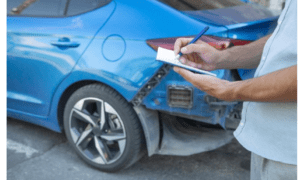Insurance is crucial for covering medical bills, property damage, lost wages, and pain and suffering. However, the defendant does not always have the necessary insurance. For instance, in the U.S., around 14% of licensed drivers are uninsured. Finding out that the person who caused your injury does not have insurance makes things more complicated in a personal injury case.
Some attorneys are even hesitant to take on personal injury cases against uninsured drivers because it becomes more difficult to recover compensation. So, what happens next?
No Insurance, No Easy Payout
In most personal injury cases, compensation comes from the at-fault party’s insurance policy. This system protects individuals who are injured from financial difficulties. But if the defendant has no insurance, whether homeowners or liability, there is no insurer to write the check. In such cases, victims should contact personal injury attorneys for help.
However, just because the defendant lacks insurance, that does not mean they are off the hook. You still have the right to pursue a personal injury lawsuit against them.
Other Avenues to Recover Compensation
1. Suing for Personal Assets
You can take the uninsured defendant to court, and if successful, you will get a judgment against them. Under personal assets, you can recover damages through property liens or bank assets. Property liens allow a plaintiff to have a claim against the defendant’s property. This means that the defendant cannot sell their property without paying your settlement. However, this only works if the defendant has valuable property.
In bank levies, the plaintiff can get money directly from the defendant’s bank account as long as they have a bank order. Because of “judgment proof” which is a situation where someone has very few assets, a plaintiff may not be able to settle the claim right away.
2. Payment Plans or Wage Garnishment
The court may rule in your favor and order the defendant to pay in installments. In some cases, a court can approve wage garnishment. This allows you, as a defendant, to get paid a portion of the defendant’s paycheck directly from the employer. While this may mean it will take some time for the settlement to be paid, it is still better than having nothing.
3. Your Own Insurance Coverage
This mostly applies to vehicle accidents where uninsured/underinsured motorist (UM/UIM) coverage can provide assistance. This policy applies when the other driver does not have sufficient insurance or their coverage is insufficient to cover damages. However, not all drivers have this add-on, but it is highly recommended to have one in such situations.
In some states like Wisconsin, Vermont, North Carolina, and Minnesota, everyone is required to have UM/UIM coverage.
4. Other Insurance Policies
Depending on where and how the injury occurred, there might be other insurance options to explore. For example, if you were hurt on someone’s property, they might have a homeowners’ or umbrella policy that could provide coverage.
Situations Where Pursuing Compensation May Not Be Worth It
Unfortunately, there are instances where pursuing compensation is not feasible. For example, if the defendant has no assets, no job, and no insurance, spending time and money on a lawsuit might not be worth it.
Therefore, it is important to weigh the cost of legal action against the chances of whether or not you will collect any money. A lawyer can investigate the defendant’s financial situation and help you make informed decisions about how to move forward.
Conclusion
To protect yourself from instances where the defendant lacks insurance, you must have solid insurance. UM/UIM coverage is important if you drive regularly. Additionally, do not forget to consult an attorney as soon as possible.



































